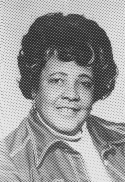Page 132
[Begin Tape 1, Side A]
Currie: This is interview number seven.
Payne: Yes. It's hard to believe.
Currie: I know. It's been a long, interesting life. I think what I'd like to do is go back to 1978. I know we talked about it on the video interviews, but I think maybe we can get a little more depth. 1978 was the year that you left the Chicago Defender.
Payne: Right. I returned. No. Let me get this straight. I moved back to Chicago and moved back to Washington in 1980. Yes, that's right. But I left the Chicago Defender and became a freelancer after 1978.
Currie: You and John Sengstacke had come to a parting of the ways.
Payne: We had.
Currie: Also Morrie Robinson had died, so you didn't have your Spectrum contract.
Payne: That's right.
Currie: So you were faced with making a living.
Payne: Making a living, right.
Currie: How did you go about that?
Payne: Well, what I did was immediately after the word came out that John Sengstacke and I had, you know, come to a parting of the ways, I got offers from several other papers to continue my column, and one of them was the Afro. I began and was picked up by the Miami Times and a chain of papers in California, small weekly papers. And that and my Social Security, was enough to, you know, tide me over. It wasn't that much, but it was enough to tide me over.
Currie: So you were getting Social Security.
Payne: Oh, yes, I was getting Social Security then.
Currie: Did you have a pension from the Chicago Defender?
Payne: No! That's one thing. John Sengstacke never established a pension plan for his employees, at least not to my knowledge. He never did.
Currie: So nobody who worked on the Defender ever got a retirement plan?

